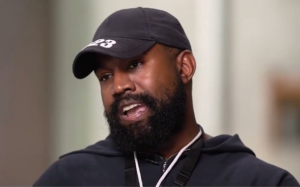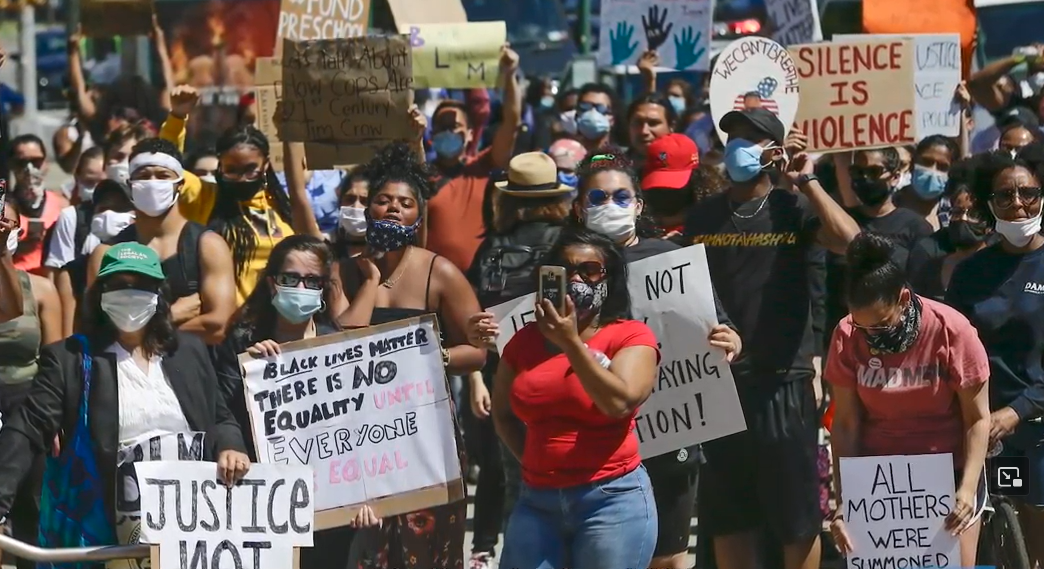Photos: Black Economics\YouTube Screenshots
Although he later pulled back from the statement, was Ye (aka Kanye West) correct?[1 ] His statement can be interpreted broadly as: “We have choices.” But with choices come consequences.

Before making a choice, should we not ask: Does the choice set include favored options?
Given that we exist in a world of constrained resources (at least this is the pablum we are sold), it is often the case that favored options are not available. But we should not forget the option that always exists: Choose none of the presented options. Why? Because as already noted, with choices come consequences.
The takeaway point is that after all consideration and deliberation, a decision to choose (our accepting) is a decision to receive all that choice implies (our getting). One could probe the “get what you accept” idea by asking whether one must accept to get?
However, we begin from the frontside of the statement to test its validity because it provides a path of least resistance. We cannot deny what we (Black Americans) have gotten. We can summarize quickly without itemizing: On average (median or mean) we stand at the bottom (or very near it) of the socioeconomic scale in the US. True!
One can submit a counter argument that Black Americans project excellence. This is true. We have “exceptions” (a term often used by the other side when noting a “Black American first”). Also, true! But we are working with averages: Something that others are willing to concede as a metric when assessing the status quo. (BTW, acceptance of the “average” metric is a choice with its attendant consequence—that we are situated at the bottom.)
Such a broad and sweeping “at the bottom” conclusion is hard to swallow. We run to identify exceptions; not individual, but fields and industries. Without much consideration we arrive at sports and entertainment as evidence that we are at or near the top. Did we automatically accept being at the top of these industries/fields or did we develop the talent (acknowledging that we are often characterizes as “naturals” or “blessed”) and then claw, scrape, and fight our way to the top?
The answer is the latter. The salient followup question is: Why sports and entertainment and not other industries/fields? Some may argue that others ceded sports and entertainment industries to Black Americans. Those others came to welcome our roles as buffoons, court gestures, and gladiators. Wrong! We dominate these industries in large measure because we used what we had to work hard and smart to become the very best, and then forced our way to the top.
And if we can rise in these industries/fields, why have we not risen to the top in other industries/fields? The answer is not that we are incapable, but we have not dedicated the same energy and effort to work to become the very best in other industries/fields. We have, for all intents and purposes, ceded other territory and cleaved to sports and entertainment. Now we are comfortable there. We “accept” that we can be the best and we “get” to, and stay at, the top.
Truthfully, we have not ceded completely other territory. There are individual exceptions. We have superior and prolific educators, entrepreneurs, and scientists. But they remain too few and far between. They are the trailblazers who did not, and do not, “accept” “you can’t do this” as an answer. They accept and live knowing that all things are possible, and “get” to the top accordingly.
Why do we “accept” and then “get” less than the very best. Over 400 years of Black American History provides answers.
On the other hand, where is the message: You are the VERY BEST simply because you continue to survive a HELLICOST, and therefore can be the best and brightest in all industries/fields. It is the absence of this message in each Black American home, place of worship, school, and civic venue that prohibits this simple realization and the related motivation to work to make it true. As long as Black America “accepts” being less than the very “best,” then that is exactly what we will “get.”
As always, seemingly simple and straightforward statements abound with complexity. But given our “best” minds, no conundrum is too complex to solve. Therefore, regardless of how the future
unfolds, one fact should be crystal clear: Until we (Black Americans) comprehend fully that we must first reject completely acceptance of our unrightful place (at the bottom) in the US society, decide what and where we want to be inside or outside of the US society, and then move systematically, determinedly, and expeditiously to reach our rightful place, then we will continue to get what we have gotten.
After we take our rightful place in society, we should go further and ask: Have we and others accepted and gotten the best possible society?
In other words, we should ask whether we should continue to accept and get the following types of onerous and less than first-best arrangements: e.g., the one percent/elite; a representative government when direct representation is possible (a purer democracy); an economy that relies too heavily on health and military-police-injustice system “services” for growth; and a media that facilities and promotes all of the foregoing as desirable/acceptable.
What we know is that without a halt to our acceptance of these arrangements, we will continue getting them!

Dr. Brooks Robinson is the founder of the Black Economics.org website.
References:
[1] Associated Press (2018). “Kanye West Apologizes for Saying Slavery Was ‘A Choice’.” Associated Press, August 29. https://www.nbcnews.com/pop-culture/celebrity/kanye-west-apologizes-saying-slavery-was-choice-n904971 (Ret. 061623)






